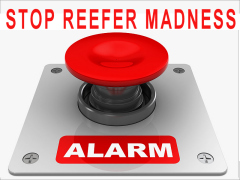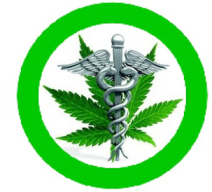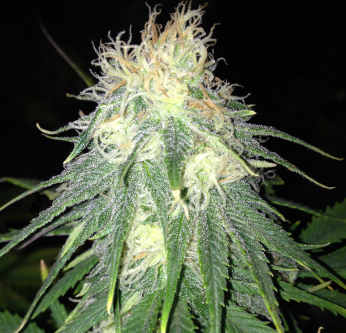Safe Cannabis Gardens Landlords' fears about pot-growing renters overblown: horticulture expertAl Unwin is the associate dean of horticulture and environmental studies at Niagara College in Ontario said landlords' concerns are more likely to apply to large growing operations with many plants..Unwin said marijuana plants require the same sort of care as other plants that renters might have in their homes. By Ashleigh Mattern, CBC News Posted December 08, 2017Federal Court Decision Allard v. Canada,Co-counsel Kirk Tousaw said "Basically we won, and it was a complete victory," and "We proved that growing medical cannabis can be perfectly safe, and can be done completely in compliance with the law and people ought to have a right to do that without fear of being arrested and locked in cages for that activity." and "The lessons I think are pretty obvious. If you can grow cannabis for yourself for medical purposes safely and with no risk for the public, surely, you can grow cannabis for yourself for non-medical purposes safely and with no risk to the public,"Judge Michael Phelan Allard v. Canada:
In particular, he called one RCMP witness for the Crown, Cpl. Shane Homequist, "the most egregious example of the so-called expert. "He possessed none of the qualifications of usual expert witnesses. His assumptions and analysis were shown to be flawed. His methodologies were not shown to be accepted by those working in his field. The factual basis of his various options was uncovered as inaccurate," he wrote.
Judge Phelan also dismissed many of the federal government's arguments concerning the risks cannabis gardens could pose to homes, noting mould, fire, break-ins and insurance concerns can be addressed within existing laws and regulations. See more on Federal Court Decision Allard v. Canada, February 24, 2016 Also of interest is, Dr. Susan C. Boyd, a B.C. researcher's book "Killer Weed: Marijuana Grow Ops, Media and Justice". about how law enforcement and media are not telling the facts. Dr. Susan C. Boyd's "Reefer madness is governmental" Dr. Susan C. Boyd is a member of Liberal government "Task Force on Marijuana Legalization and Regulation" Add our voice to the future of cannabis industry in Alberta & Canada  Calgary: Edmonton: Alberta: Canada: Evidence and science information: American Journal of Public Health (ajph) Crash Fatality Rates After Recreational Marijuana Legalization in Washington and Colorado. Evaluate motor vehicle crash fatality rates in the first 2 states and compare them with motor vehicle crash fatality rates in similar states without recreational marijuana legalization. Automobile crash fatality rates in Washington and Colorado were no different from comparable states without legal recreational cannabis. ajph.aphapublications.org/doi/abs/10.2105/AJPH.2017.303848 2015 The U.S. Department of Transportation report suggests that while cannabis could potentially impair driving skills, its findings in other research suggest drivers under the influence of cannabis are actually more cautious. "Subjects in most of the simulator and instrumented-vehicle studies on marijuana are driving typically drive slower, follow other cars at greater distances and take fewer risks than when sober," the report said. www.nhtsa.gov/staticfiles/nti/pdf/812117-Drug_and_Alcohol_Crash_Risk.pdf
There have been zero documented deaths from marijuana use alone. Marijuana appears to be significantly less addictive than alcohol." Philippe Lucas, VP at Tilray, a research scholar with the University of Victoria’s Centre for Addictions Research of BC, said cannabis dependency isn’t as severe as some make it out to be. Normally, people are able to give up cannabis on their own, compared to severe drugs, Lucas, the lead author in a September 2015 study in the "International Journal of Drug Policy", a peer-reviewed publication found medical cannabis can be a safe and successful substitution for other addictions to alcohol 25% reduction, 32% for opiates, 12% tobacco, and more. The study has been updated and published August 2017, "Rationale for cannabis-based interventions in the opioid overdose crisis" in the Harm Reduction Journal.
"2. Unsubstantiated media and police reports portray the cannabis industry as dominated by organized crime." Evidenced that teen cannabis consumption is not lead to the development of schizophrenia later in life. The study compared families with a history of schizophrenia to those without. The study also examined non-psychotic cannabis consumers and non-consuming participant controls. The results of the current study suggest that having an increased familial morbid risk for schizophrenia may be the underlying basis for schizophrenia in cannabis users and not cannabis use by itself. November 2017 Dr. Elaine Hyshka, “There are also people who claim that cannabis is going to basically damage your brain when you use it, especially if you’re young, and that it’s going to contribute to the intellectual downfall of a generation. And that’s also not true,” she said. Also see, November 21, 2017 April 2, 2017 Dr. Susan C. Boyd, a B.C. researcher's books "Killer Weed: Marijuana Grow Ops, Media and Justice". about how law enforcement and media are not telling the facts and "Reefer madness is governmental" Note: Dr. Susan C. Boyd is a member of Liberal government "Task Force on Marijuana Legalization and Regulation" |
News Media - 420
Parliament of Canada E-Petitions |




